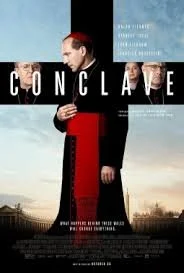
Film through law. Law through film.
Law on Film podcast explores the rich connections between law and film. While law is critical to many films, films also show how the law is perceived and portrayed. Each episode looks at a different film. What does the film get right about the law? What does is get wrong? And what does the film tell us about the larger social and cultural context in which law operates?
Latest Episode
Conclave
Guest: Monsignor Raymond Kupke
In Conclave (2024), Cardinal Thomas Lawrence (Ralph Fiennes) organizes a conclave to elect a new pope. Key candidates and factions vie with one another as the process plays out until finally a new pope is elected. The film was directed by Edward Berger from a script by Peter Straughan (based on the 2016 novel by Robert Harris), and features an all-star cast including Fiennes, John Lithgow, Stanley Tucci, and Isabella Rossellini. The film provides a window into the process for electing a new pope, along with the legal, historical, and political forces that have shaped it.








